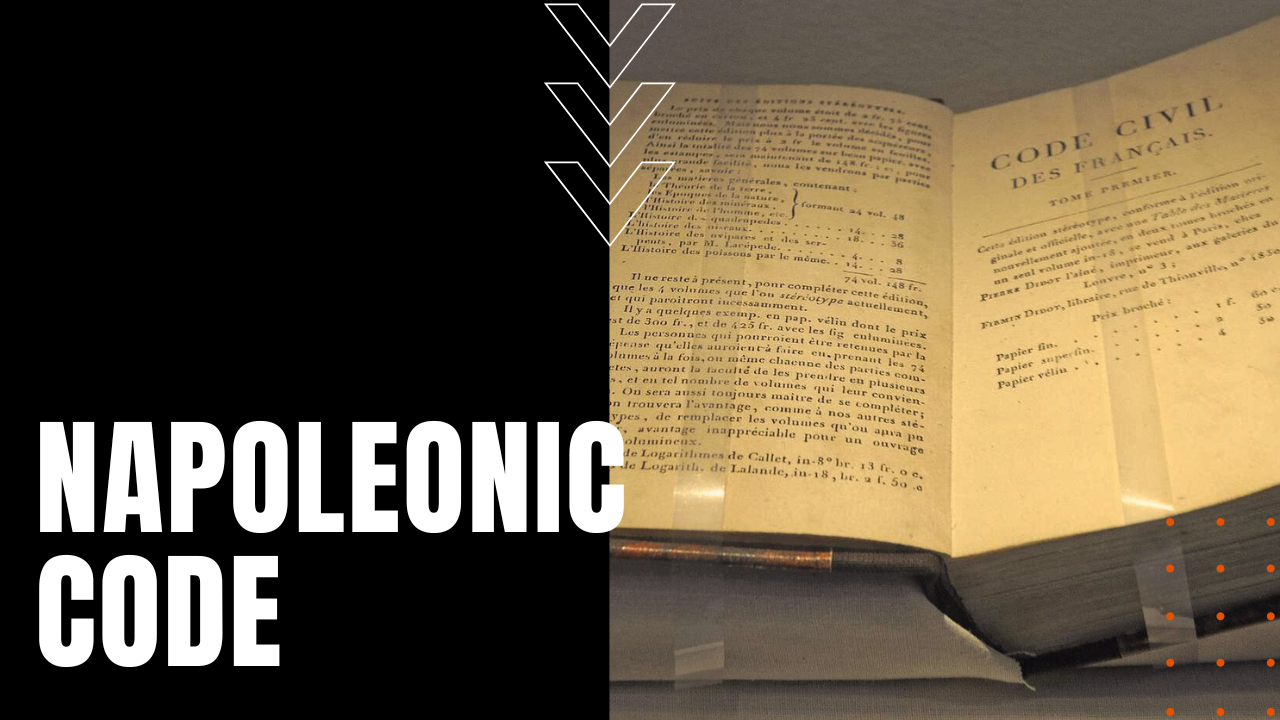The Napoleonic Code

Continuing in the spirit of French Revolutionary reforms, newly-crowned Emperor Napoleon Bonaparte set out to reform France’s hodgepodge of regional, contradictory and confusing feudal laws within French jurisprudence, which was originally inspired by Justinian’s sixth-century Codex of Roman law known as the Corpus Juris Civilis. Before jurist scholars set to work defining the Code civil des Francais or Code Napoleon or simply Code civil,
Once a Patchwork of Customs Laws
French jurisprudence operated under a patchwork of laws known as customs, most notably the Custom of Paris, replete with loopholes, exemptions, privileges and special charters for the king and other feudal lords. In an attempt to compose a single legal Codex to govern French society, the Constituent Assembly began the task late in 1790, which bogged down in revisions and amendments until Napoleon came to power in 1799.
Enter an Eminent Jurists
A year later, Napoleon commissioned four eminent jurists to the task, including Louis-Joseph Faure and chaired by Jean-Jacques Regis de Cambaceres, which created an easily-understood set of national laws that were much more rational, at the same time lacking any religious content and written in the French vernacular.
Three Divisions of Law
And while Justinian’s Corpus Juris Civilis divided law into three classifications—persons, things and actions—when the Napoleonic code was adopted by the French Consulate and published on March 21st, 1804, the new classifications included persons, property, acquisition of property and civil procedure, the later moved into own Codex in 1806.
Men Gain Greater Authority
In a nutshell, the Code civil codified several offshoots of French law, including commercial and criminal, while dividing civil law into property and family, which gave men greater authority over their families, reduced the rights of illegitimate children, and thoroughly stripped women of individual rights. To further the misogynistic discrimination against women, the Napoleonic code granted equal rights to all male citizens, including the right to religious dissent, at the same time reintroducing colonial slavery to all territories under Napoleon’s control.
A Living Code
Today, Napoleonic code survives despite countless amendments to its original form, which has since influenced the laws and jurisprudence of other pan-European nations, as well as Latin America, the Middle East, and the American state of Louisiana, making the Napoleonic code, a unifying moment in the laws of modern France.
